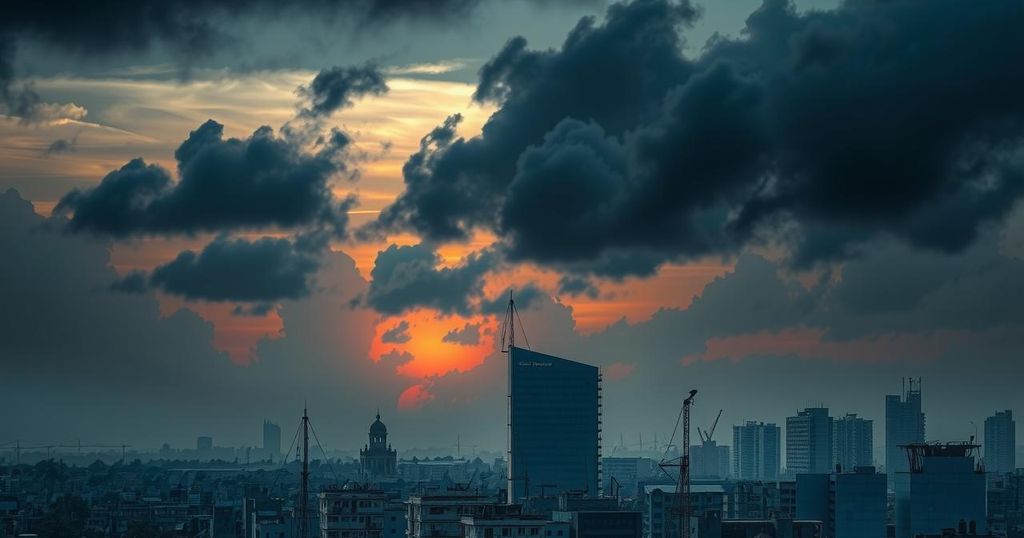Concerns Surge Over Al-Shabaab’s Resurgence and Government’s Struggles in Somalia

Al-Shabaab jihadists in Somalia are regaining ground after a period of defiance, now threatening the capital Mogadishu following a close call with President Mohamud. Analysts express concerns over diminishing international support and internal government challenges. While some believe the group’s advances are significant, others assert that immediate threats to Mogadishu are overstated amid ongoing political issues.
Recent developments indicate that the Al-Shabaab jihadist militia in Somalia is demonstrating signs of resurgence, particularly following a failed assassination attempt on President Hassan Sheikh Mohamud. After a period of being on the defensive between 2022 and 2023 due to military pressure from the Somali government and international allies, the group is reclaiming territory in key regions like Middle and Lower Shabelle, which flank the capital, Mogadishu.
Analysts are concerned that support from the United States and the African Union appears to be waning, which coincides with Al-Shabaab’s strategic gains. The group has regained control over vital locations and has posed a significant threat, as evidenced by a recent bomb explosion that nearly targeted the presidential convoy in Mogadishu. Officials report that Al-Shabaab has taken over central towns in Middle Shabelle, such as Masaajid Cali Gaduud, merely a day after the President’s visit aimed at reinforcing government control.
Experts have observed a pattern of government retreat, particularly in Lower Shabelle where the loss of crucial chokepoints is noted. Matt Bryden, an analyst, asserts that the government’s reliance on clan militias and local forces indicates a lack of organization and strength within the official military ranks. Bryden further highlights growing public apprehension regarding the government’s ability to secure Mogadishu effectively against potential encirclement or attacks.
President Mohamud remains resolute in continuing the fight against Al-Shabaab, asserting that there will be no retreat in their efforts to achieve victory. However, the Somali government faces potential reductions in international support as the financial contributions from the United States are in jeopardy. With the operational shifts aimed at higher coordination and support for Somali forces, analysts caution that the balance of power may tilt back to Al-Shabaab in the near future.
Despite these challenges, some analysts believe that Al-Shabaab is not an immediate threat to Mogadishu. Omar Mahmood from the International Crisis Group suggests that the government’s focus has shifted towards political maneuvering and away from military diligence. He notes that Al-Shabaab has capitalized on the existing clan grievances during a period marked by electoral uncertainties and constitutional debates, positing that current events are symptomatic of a long-standing conflict rather than a simple march toward the capital.
The resurgence of Al-Shabaab in Somalia presents significant challenges for the government and international allies, particularly in light of reduced support and internal political distractions. While the group has successfully reclaimed strategic territories, assessments vary on the immediate threat level to Mogadishu. The Somali administration’s future will depend heavily on addressing both military and political strategies to stabilize the region and counteract Al-Shabaab’s gains effectively.
Original Source: www.france24.com








